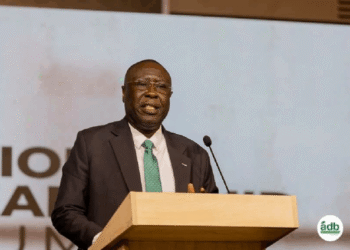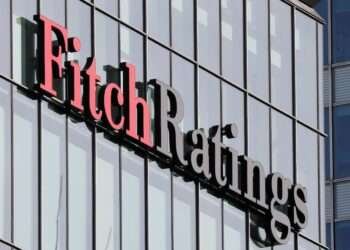Fitch Solutions, a highly regarded credit rating research institutions that provides accurate, granular and in-depth information, especially in markets where information is hard to find, has expressed optimism of a likely International Monetary Fund (IMF) Board approval for a programme for Ghana in the first quarter of 2023.
In its January 2023 Sub-Saharan Africa Macroeconomic Update, fitch solutions disclosed that the country had made a significant progress on the Domestic Debt Exchange Programme, a key condition for the $3 billion Balance of Payment support from the Fund.
Mr. Mike Kruninger, the Senior Country Risk Analyst at Fitch Solutions based in London, divulged that per his projections, the International Monetary Fund Executive Board approval will happen in the coming weeks.
Mr. Kruninger, however, warned that should the approval fail to happen in quarter one of 2023, investor sentiments will remain weaker in the coming months, putting additional pressure on the Ghana cedi. “IMF’s refusal to approve funds for Ghana will lead to a continuous fall in the value of the cedi relative to other international currencies,” he said.
“So in the first quarter of 2023, should this not happen, we will be expecting investor confidence to remain rather weak in the coming months which will put additional pressure on the exchange rate. So in that case, the currency will depreciate further more significantly than we currently anticipate.”
“So what will happen in that instance is inflation will remain much higher for much longer. And this will then weigh on incomes, it will weigh on overall private sector activities.”
Mr. Mike Kruninger
He concluded by stipulating that, Ghana’s growth rate will then be weaker than the 2.9% should in case she does not receive the targeted US$3billion from IMF.
“So in this instance the economic wealth will become much weaker than the 2.9 percent that we are currently forecasting.”
Mr. Mike Kruninger
IMF Deal Would Improve Ghana’s External Position, Restore Investor Sentiment
Fitch Solutions had earlier said the IMF deal would help improve Ghana’s external and fiscal positions, restoring investor sentiment and easing pressure on the exchange rate.
It indicated that the government would make greater progress on fiscal reforms under the IMF deal.
Fitch Solutions
Ghana’s fiscal metrics had deteriorated significantly since 2020, due to weak revenue inflows and high-interest expenditures, with its budget deficit narrowing only slightly to 8.6% of Gross Domestic Product (GDP) in 2022 (from 9.3% in 2021), much wider compared to the 10-year pre-pandemic average of a 4.9% deficit.
“Under an IMF programme, we expect the government would make greater progress on fiscal reforms as the authorities seek to meet the targets to regain market access.”
Fitch Solutions
Read Also : SSNIT And Auditor General in Disagreement Over $17.5 million STC Loan






















